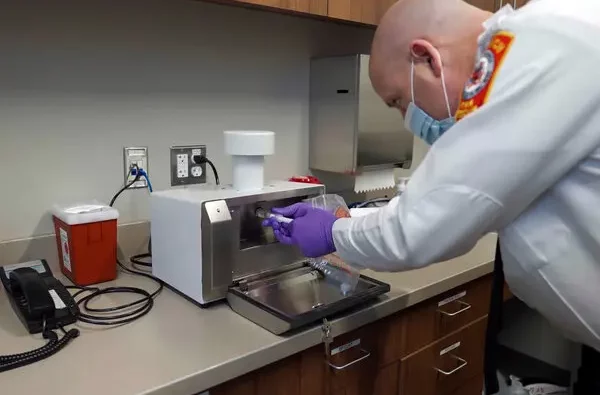
About the Author:
Dr. Sarah Jones is a licensed clinical psychologist with over a decade of experience treating individuals and families struggling with mental health challenges. Dr. Jones is passionate about promoting mental health awareness and reducing the stigma that often prevents people from seeking help.
The Power of Words: Why Stigma Matters
Our words have a powerful impact. They can build bridges of understanding or create walls of isolation. Unfortunately, when it comes to mental health, negative attitudes and beliefs – often referred to as stigma – can prevent people from getting the help they need. This stigma can manifest in many ways, from feeling ashamed or embarrassed to talk about mental health struggles to fearing discrimination in work or social settings.
Imagine a young student experiencing anxiety so severe it makes attending school nearly impossible. The fear of being labeled “weak” or ostracized by classmates keeps them silent, further intensifying their anxiety and hindering their academic progress. This is just one example of how stigma can worsen mental health conditions and prevent individuals from seeking the support that could make a world of difference.
Understanding Mental Health: It’s More Common Than You Think
Mental health conditions are far more prevalent than many people realize. According to the National Alliance on Mental Illness (NAMI), a staggering one in five adults in the United States experiences a mental illness each year. These conditions encompass a wide range of experiences, including anxiety, depression, bipolar disorder, and post-traumatic stress disorder (PTSD). They can affect anyone, regardless of age, socioeconomic background, or ethnicity.
Just like physical health, mental health exists on a spectrum. While some people experience mild symptoms that may be manageable with self-care strategies, others face more severe challenges that require professional intervention. The key takeaway is that mental health concerns are nothing to be ashamed of. They are just as valid as physical health concerns, and seeking help is a sign of strength, not weakness.
Breaking the Silence: Starting the Conversation
If you’re unsure how to talk about mental health, the good news is that you don’t need to be an expert. Often, the simplest act of initiating a conversation can be incredibly powerful. Here are some tips for getting started:
- Lead by example: Talk openly about your own experiences with mental health, even if it’s just sharing that you prioritize self-care or have a regular therapy session.
- Ask questions: Show genuine interest in how someone is doing. Instead of a generic “how are you?” try something like, “How have you been managing lately?” or “Is there anything you’d like to talk about?”
- Listen actively: Give the other person your full attention and avoid interrupting. Validate their feelings and let them know you’re there for them.
- Share resources: If you know of helpful resources, such as mental health hotlines or support groups, offer to share them.
The Impact of Open Communication: Benefits for Individuals and Communities
Open communication about mental health creates a ripple effect of positive change. Here are just a few of the benefits:
- Reduced isolation: Talking about mental health struggles can help people feel less alone and connect with others who share similar experiences.
- Increased access to support: Open conversations can encourage people to seek help from therapists, counselors, or support groups.
- Fostering empathy: When we talk openly about mental health, we create a more understanding and compassionate environment for everyone.
- Empowerment: Talking about mental health challenges can be empowering, allowing individuals to take control of their well-being.
Imagine a workplace where open communication about mental health is the norm. Employees feel comfortable discussing stress levels or taking mental health days without fear of judgment. This not only benefits individual employees’ well-being but also fosters a more productive and supportive work environment.

Beyond Words: Actions Speak Louder
While open communication is crucial, our actions also play a significant role in shattering the stigma surrounding mental health. Here are some ways to take action:
- Advocate for mental health awareness: Support organizations like NAMI that work to educate the public and fight stigma.
- Challenge negative stereotypes: When you hear someone make a dismissive or derogatory comment about mental illness, speak up and challenge their perspective.
- Educate yourself: The more you know about mental health conditions, the better equipped you’ll be to advocate for yourself and others. There are many reputable resources available online and in libraries, including websites from organizations like the National Institute of Mental Health (NIMH).
- Be mindful of your language: We often use words and phrases unconsciously that perpetuate stigma. For example, avoid saying things like “That’s so OCD” or “He’s crazy” to describe everyday situations.
- Support local initiatives: Many communities have mental health awareness walks, fundraising events, or support groups. Participating in these activities is a great way to show your support and connect with others who are passionate about mental health.
Let’s Talk: Resources and Support
If you or someone you know is struggling with a mental health condition, there is help available. Here are some resources:
- National Suicide Prevention Lifeline: 988 (This number recently went into effect in the United States and connects callers to a trained counselor who can provide crisis support and resources.)
- National Alliance on Mental Illness (NAMI): 1-800-950-NAMI (6264) NAMI offers a wealth of information and support services, including a helpline staffed by trained volunteers who can provide information and connect you with local resources.
- The Jed Foundation: The Jed Foundation focuses on mental health resources and support specifically for teens and young adults.
- The Trevor Project: The Trevor Project provides crisis intervention and suicide prevention services to LGBTQ youth.
Remember, you are not alone. Mental health conditions are treatable, and with the right support, you can live a happy and fulfilling life.
Taking Care of Yourself
Just as we take care of our physical health, it’s important to prioritize our mental well-being. Here are a few self-care strategies that can promote mental health:
- Regular exercise: Physical activity has been shown to have a positive impact on mood and reduce symptoms of anxiety and depression.
- Healthy sleep habits: Getting enough quality sleep is essential for both physical and mental health. Aim for 7-8 hours of sleep per night.
- Mindfulness practices: Techniques like meditation and yoga can help reduce stress and improve focus.
- Connecting with loved ones: Strong social connections are essential for mental well-being. Spend time with people who make you feel supported and loved.
- Seeking professional help: Don’t hesitate to seek help from a therapist or counselor if you’re struggling. A mental health professional can provide you with the tools and support you need to manage your mental health condition.
Conclusion: The Conversation Continues
Shattering the stigma surrounding mental health is an ongoing process. By talking openly, educating ourselves, and taking action, we can create a world where everyone feels comfortable seeking help and prioritizing their mental well-being. Let’s continue the conversation, break down barriers, and empower ourselves and others to live healthy and fulfilling lives.










